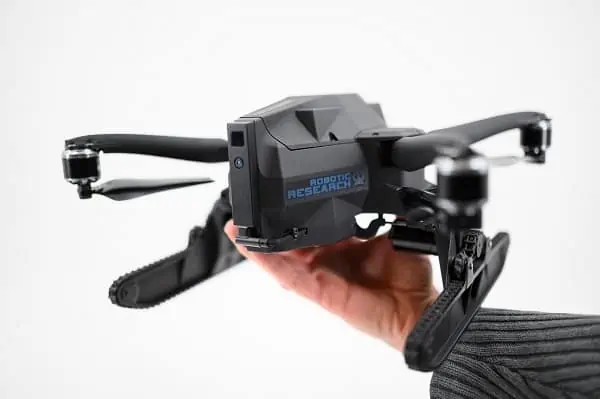Robotic Research, LLC will increase the capacity of its Pegasus Mini hybrid transforming drone/ground robot system under a new Small Business Innovation Research (SBIR) Phase II contract from the Defense Threat Reduction Agency (DTRA).
As part of the two-year contract, Robotic Research will upgrade the system’s airframe, battery, and computing and sensing capabilities.

The small unmanned aerial / land vehicle weighs 4 lbs and is approximately the size of a football when folded up and carried in a backpack. Deployed in the field, it can change back and forth between modes as required by the user and the environment, allowing it to access areas that standard ground robots or drones might not be able to reach.
DTRA plans to incorporate Pegasus Mini into the Modular Autonomous Counter-Weapons of Mass Destruction, Increment B (MACS-B) program
“Early on, DTRA recognized how the warfighter could benefit from a hybrid unmanned system that both flies and drives,” said George McWilliams, Director of Advanced Programs at Robotic Research. “With their support, we created an initial Pegasus Mini prototype, and we now are advancing it further.”
“Pegasus Mini can fly into three-story windows. It can perch and stare. It can autonomously navigate, explore and map enemy tunnel systems,” McWilliams said. “We see it as being a critical element in DTRA’s family of robotic systems as well as a powerful tool in the hands of other users.”
The SBIR Phase II, which will include demonstrations in operationally relevant environments, is set to conclude in June 2023. After that, company officials say Pegasus Mini’s design will be further refined based on user feedback.
Find suppliers & manufacturers of Small Unmanned Aerial Vehicles >>


















